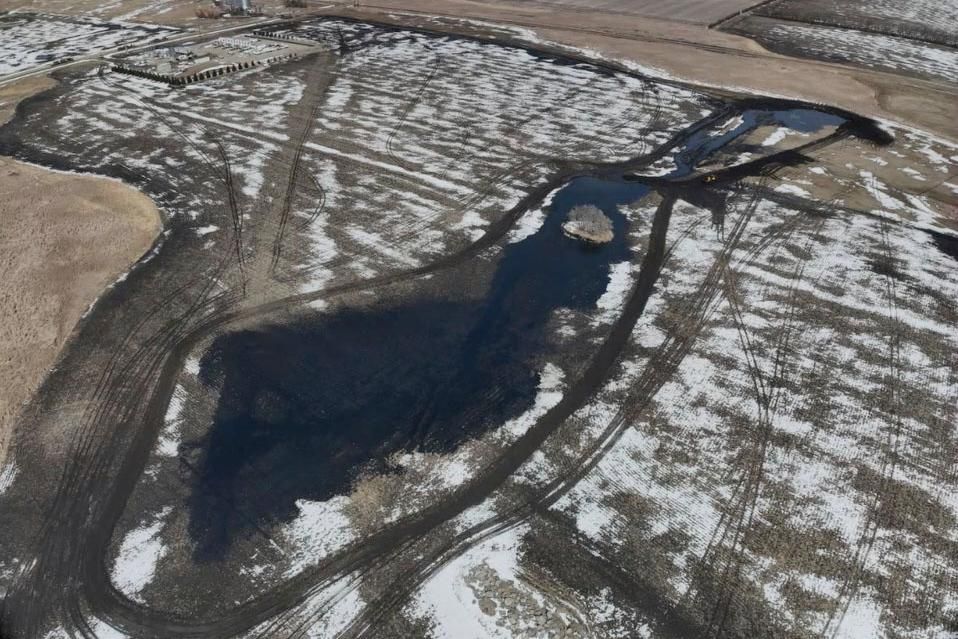
The Keystone oil pipeline from Canada to the U.S. has reopened at reduced pressure, after being closed for six days following an oil spill in North Dakota.
The leak and spill occurred on April 8, with about 3,500 barrels worth of oil spilling near Fort Ransom, North Dakota. The spill was contained, pipeline operator South Bow said on its website, and vacuum trucks and air monitors were dispatched for further cleanup and remediation of the environmental impact of the spill.
By Friday, trucks had recovered 1,170 barrels worth of oil according to the Department of Transportation’s Pipeline and Hazardous Materials Safety Administration.
South Bow was allowed to move ahead with reopening the pipeline Monday under a corrective action order from the PHMSA; the company dug up the failed section of pipe, shipped it to a lab in Houston for testing and replaced it.
Under the terms of the order, the pipeline is being evaluated to see if the pressure needs to be dropped again, having previously been reduced from its original levels following a December 2022 oil spill in Washington County, Kansas.
South Bow must also look over inspection reports for the failed section for the past decade and analyze the root cause of the pipeline’s failure, to figure out if there are any problems that could be repeated elsewhere along the nearly 2,700-mile-long line.
In addition to complying with PHMSA on pressure levels, South Bow is also restricting the amount of pressure in the Canadian section of the pipeline in accordance with the Canada Energy Regulator.
South Bow said on its website that it is monitoring the scene 24/7 and will remediate the agricultural field where the oil spilled in full. The cause of the spill is still under investigation.
“PHMSA has already secured the operator’s full cooperation and written commitment to take any steps necessary to repair the line and identify the cause of the failure. Multiple PHMSA investigators are on the ground in North Dakota and in the operator’s control room facility in Calgary working to determine the cause of the accident,” said PHMSA acting Administrator Ben Kochman.












